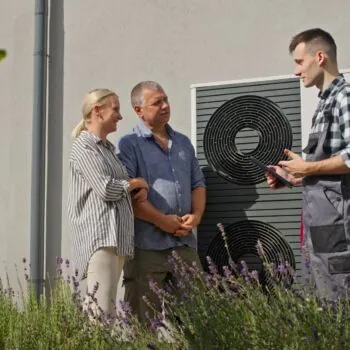When Greg Clark, the Secretary of State for Business, Energy and Industrial Strategy, sat in front of the TV cameras on Tuesday morning and announced that he had not switched energy supplier because it was too much hassle, you could almost hear the collective gasp from across the energy industry and regulatory institutions.
Given that encouraging people to switch supplier has been the centrepiece of Government policy for nearly two decades, this confession was almost heretical. ‘Switch and save’ goes the mantra – and many people have – often cutting their annual energy bills by several hundreds of pounds. But many have not. And whilst some of these non-switchers are busy, well-to-do-professionals, like Greg Clark, many come from the poorer parts of society.
The reality is that Greg Clark’s statement will have touched a chord with many people. Even those who do switch, and switch often, would rather be spending their time and effort doing something else. ‘Why has the energy market been made so complicated?’ and ‘Can’t the Government just ‘sort it out’?’ are commonly expressed public views. The Conservative policy proposal to cap energy prices is, therefore, likely to have wide popular appeal. What is more, if the leak of the Labour Party manifesto is to be believed, it is not only the Conservatives who are planning a price cap. The leaked Labour proposals include an “immediate emergency price cap” to make sure dual fuel bills stay below £1,000 a year.
Price cap pledges
These price cap pledges clearly demonstrate a political consensus that all is not well with the energy market and Government intervention is required.
The acid test will be whether post-election, the new Government is prepared to do something more fundamental and permanent to actually make it easier for us all to get a good deal from our energy supplier.
Ideally, the energy market should ensure that the best thing for people to do is also the easiest. Right now, that is simply not the case.
What’s more, getting a ‘good deal’ is only going to become more complicated. In the future, the costs of energy will increasingly depend on the ability of consumers to adjust consumption using the myriad of ‘smart’ home energy devices that are now available. Indeed, the ability to take advantage of low cost home renewable energy technologies, or to cost-effectively charge an electric vehicle, may critically depend on this smart technology. This technology must be easy to use.
Additionally, improving the energy efficiency of buildings can permanently reduce energy costs by an amount several times greater than the ‘up to £100 a year’ claimed for the Conservative’s price cap proposal. The Committee on Climate Change has recently estimated that households have already saved £490 per year due to reduced energy demand mainly from more efficient lights, appliances, heating and insulation. Much of this has been driven by public policy. A price cap policy without an ambitious energy efficiency programme ignores the best long term solution to high energy bills – reducing demand for energy.
The hassle-factor of taking advantage of all these opportunities is much greater than switching supplier however. If consumers are unable to pick up the phone to change their energy provider now, how will we ever persuade millions of them to move away from their reliable and convenient gas boiler heating systems to lower carbon alternatives in the future?
Take note that the benefits of these changes extend beyond the individual though. They are essential if we are going to be able to securely decarbonise the energy system as cheaply as possible in line with statutory carbon reduction budgets.
Going beyond the price cap
The timing of this general election means it will not be possible to kick these issues into the ‘long grass’ to be addressed after the following election – the Government will have to come forward with a clear strategy for meeting carbon budgets during the next parliamentary term.
We need a new energy market that genuinely puts the interests of consumers first and ahead of those of big business.
There must be strong incentives that prevent businesses from trading-off the quality of the customer experience for increased profits. This means introducing new regulatory systems with energy companies competing and innovating to ensure it is easy for all energy consumers to enjoy the benefits of cheap, clean energy supplies in a smart and energy efficient way.
There is no need to tear up the current arrangements and start from scratch. New delivery systems can be piloted at local levels within the current national framework. The opportunity exists to make real progress over short timescales. To create a true consumer focused market, the Government must take the necessary steps to make it easier for consumers to get a good deal.
While the Conservative and Labour price cap proposals are not ideal, they do not deserve the widespread criticism they have received. After all, they do speak to the real concerns of many people across the country. But if a cap on energy price goes ahead it must be the beginning, not an electorally popular end, of a far more ambitious energy policy reform to put the consumer first and slash energy demand.


